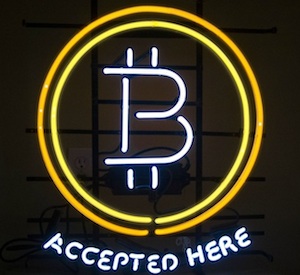
CES needs Bitcoin more than Bitcoin needs CES.
The 2014 Consumer Electronics Show opens next week in Las Vegas, with preview events beginning on Sunday and the exhibit floor opening on Tuesday. The show lacks last year’s changing-of-the-guard fascination, when mobile kingpins and rising giants held prominent places in keynote and featured sessions. Instead, it’s about reviving the brands that were shouldered aside in 2013.
But there’s always something new to see at CES, with three trends looking particularly interesting…
Wearables – CES exhibit halls promise to be packed with smart watches, eyeglass mounted video displays and cameras, and various other small, wearable devices – health and fitness related in many cases – that serve as smart phone peripherals or substitutes. The question to answer is whether the category will remain awash in marginally useful gizmos or will killer apps and dominant products emerge?
Chinese brands – Like Japanese and Korean manufacturers before them, Chinese companies are leaving bargain bin positioning behind, and building brand equity at an even faster rate. Aided by a huge internal market and a strong base in rapidly evolving mobile product categories, the likes of ZTE, Huawei and Lenovo will finally have the floor presence and brand recognition to match their market share. Prediction for 2015: one of the three will get a major keynote slot and the other two will figure prominantly at featured CES events.
Bitcoin – At least four companies built around this virtual currency are either in the show or on its periphery. One is a hardware play – it makes specialised Bitcoin mining equipment – and the others are online services. For many years CES got energy and edge from the adult content industry: maybe there’s hope a fresh libertarian wind will invigorate it again.
I don’t expect to see much mobile buzz or home automation system news. Devices of both sorts will be floating around, but it looks like the mobile industry is waiting for the Barcelona show next month and home automation is still searching for a mainstream business model. Let’s hope for surprises.
